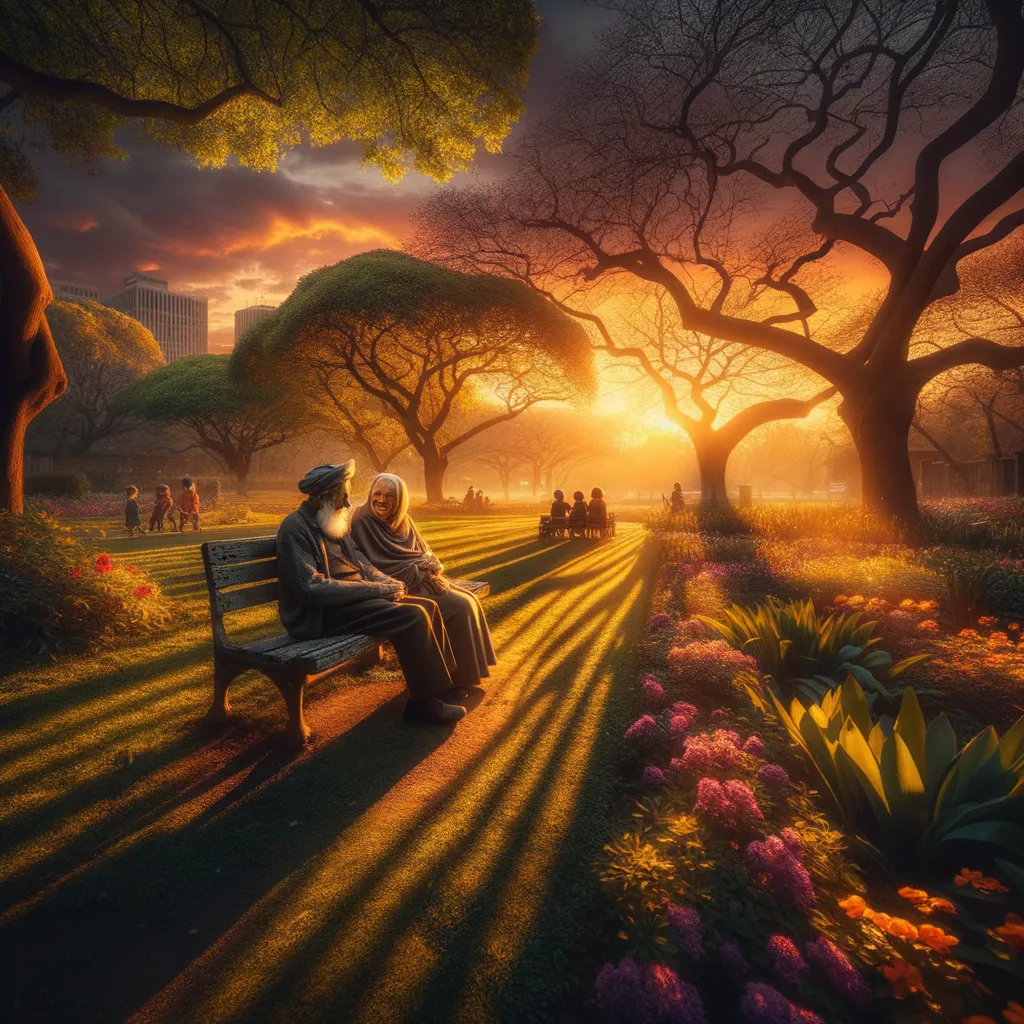A Moment of Courage: Discovering the Power of Voice
In a small town caught in the sweltering heat, a seemingly ordinary day spirals into an extraordinary moral dilemma that tests the very fabric of courage and compassion. As the protagonist wanders toward the local park, the air thick with laughter and tension, they stumble upon a heart-wrenching scene—a boy clutching a crumpled note, a silent plea echoing the pain of bullying. Faced with the choice to remain an observer or to speak out, the weight of expectation looms large, igniting an internal battle between fear and the desire for justice. In a moment of unexpected bravery, words spill forth, transforming the atmosphere as the crowd shifts from indifference to a chorus of support, illuminating the power of collective action. Yet, as the sun sets, a lingering question remains: in standing up for what is right, did they truly embrace heroism, or merely navigate the fine line between bravery and folly?
In the memory of July 2, 2000, I found myself at a crossroads, standing in the sweltering heat of a small town that seemed to hold its breath. The air was thick with the scent of freshly cut grass and the faint sound of children laughing in the distance, yet I felt an unsettling tension simmering beneath the surface. It was a day like any other, yet fate had woven a narrative that would challenge my sense of right and wrong, inviting me to explore the depths of my own morality.
The sun hung high in the sky, casting long shadows that danced like specters across the pavement as I made my way toward the local park. I had always seen this park as a sanctuary—a place where laughter mingled with the rustling leaves, where friendships blossomed and secrets were whispered. But that day, it became the setting for a moral quandary that would haunt me for years to come. As I approached, I noticed a gathering of people, their voices rising and falling like the tide, caught in a swell of emotion that drew me closer.
Among the crowd, a small boy stood clutching a crumpled piece of paper, his face a mask of uncertainty. He was visibly upset, his wide eyes glistening with unshed tears. At first, I thought he had simply lost something—a toy, perhaps, or a cherished drawing—but as I moved closer, I realized the gravity of the situation. He was holding a note, a desperate plea written by a friend who had been bullied. The words echoed the pain of exclusion, of feeling powerless in a world that often turned a blind eye to cruelty.
As the crowd debated what to do, I felt an overwhelming urge to intervene. A part of me wanted to stand up, to speak out against the injustice that had left this child so vulnerable. But another part whispered caution, warning me of the consequences of stepping into the fray. I could feel the weight of expectation pressing down on me, a silent judgment from those around me. Would my voice matter, or would it simply be drowned out by the cacophony of indifference?
In that moment, time seemed to stretch, and I became acutely aware of the choices laid before me. I could remain silent, a passive observer in a drama that unfolded without me, or I could take a stand, risking rejection and scorn. As I wrestled with this internal conflict, I caught sight of the boy’s trembling hands, the way he clutched that note as if it were a lifeline. It was then that I realized the stakes were higher than my own discomfort. This wasn’t just about me; it was about giving a voice to the voiceless.
With a surge of determination, I stepped forward, my heart racing. The words spilled out before I could second-guess myself, a heartfelt declaration against the cruelty that had cast a shadow over this child’s life. The crowd fell silent, their eyes shifting toward me, a mixture of surprise and curiosity etched on their faces. In that suspended moment, I felt a sense of liberation, as if I had peeled back the layers of fear that had held me captive for so long.
What followed was unexpected. Rather than backlash, I was met with a chorus of agreement, a ripple of support that spread through the crowd like wildfire. Strangers nodded, some stepped forward to share their own stories, and the boy’s face transformed from despair to hope. It was a poignant reminder that courage could ignite change, that even the smallest act of defiance could create a wave of compassion. In that shared moment, we were no longer bystanders; we were allies united against a common foe.
As the sun began to dip below the horizon, casting a warm golden glow over the park, I felt a profound sense of connection, a realization that our collective voices held the power to uplift, to heal. Yet, as I left the park that evening, a question lingered in the air like the faintest echo of a distant bell: had I truly done the right thing, or had I merely stumbled upon a fortunate turn of fate? The line between hero and fool often blurs, and I found myself pondering the complexities of morality and the choices we make in the face of adversity.
Years have passed since that day, yet the memory remains vivid, a touchstone for moments of doubt and uncertainty. The boy’s face, the words of that note, continue to resonate within me, serving as a reminder that every decision carries weight. It raises a question that lingers long after the echoes of that summer afternoon have faded: in our quest for justice, how often do we dare to confront our own fears in the name of what is right?
In the delicate balance between silence and action lies the power to transform despair into hope, where courage ignites the flames of compassion in the hearts of many.



